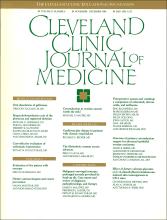ABSTRACT
Dietary calcium glucarate was evaluated as an anti-initiating and anti-promoting agent against skin tumorigenesis in CD-I mice. A diet supplemented with 4% calcium glucarate inhibited papilloma formation by approximately 50% when fed during either the 7,12-dimethylbenz(a)anthracene-mediated initiation or 12-O-tetradecanoylphorbol-13-acetate-mediated promotion phase of skin tumorigenesis. Papilloma development was decreased in mice receiving calcium glucarate during either the initiation or promotion phases. A calcium glucarate-supplemented diet also inhibited hepatic microsomal β-glucuronidase activity in the mice by about 40%. At the acidic pH of the stomach, calcium glucarate acts as a sustained-release source of D-glucaro-1,4-lactone, a potent ß-glucuronidase inhibitor. Both the initiating and promoting agents undergo glucuronidation, therefore, the inhibition of skin carcinogenesis by calcium glucarate is probably due to increased clearance of the initiating and promoting agent by this phase II reaction. However, calcium glucarate may also act by other mechanisms not yet identified.
- Received September 1987.
- Accepted February 1988.
- Copyright © 1988 The Cleveland Clinic Foundation. All Rights Reserved.






